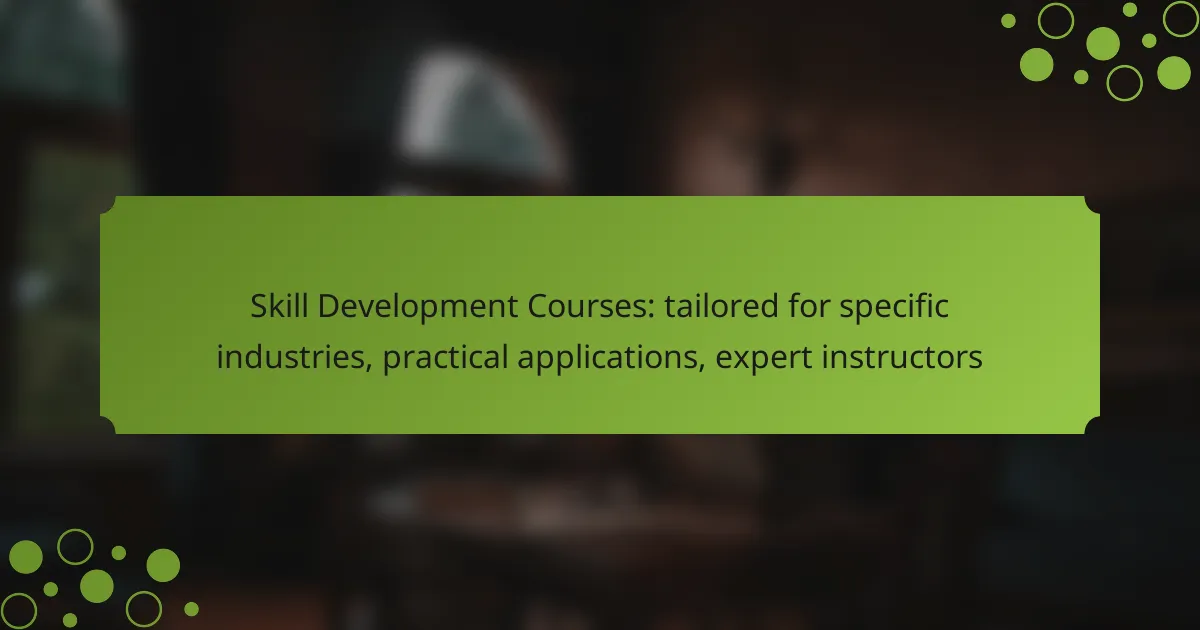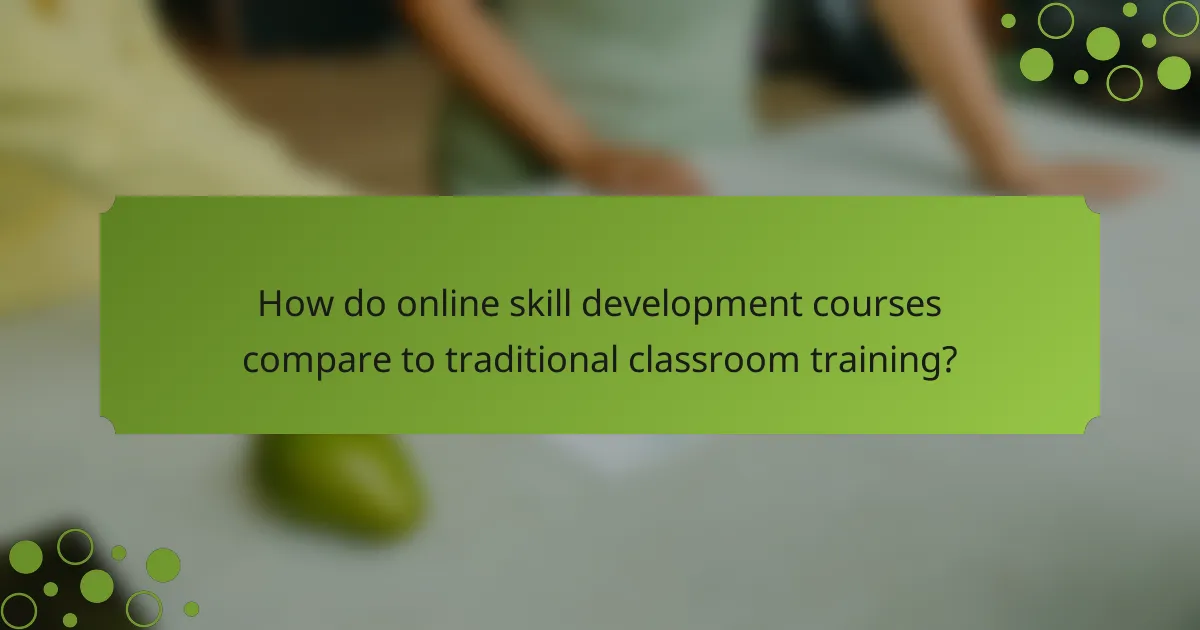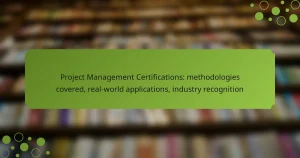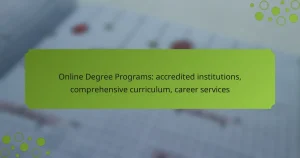
Skill development courses are designed to meet the unique needs of various industries, offering tailored training that enhances specific competencies. With a focus on practical applications and instruction from expert instructors, these courses equip individuals with the skills necessary to excel in their careers and adapt to evolving job markets.

What are the best skill development courses for healthcare professionals?
The best skill development courses for healthcare professionals focus on enhancing specific competencies that are critical in the industry. These courses are designed to provide practical applications, expert instruction, and relevant certifications that can significantly improve career prospects.
Medical Coding and Billing Certification
Medical coding and billing certification courses teach healthcare professionals how to translate medical procedures and diagnoses into standardized codes. This skill is essential for accurate billing and compliance with regulations such as HIPAA in the United States.
Courses typically cover topics like ICD-10 coding, CPT coding, and billing processes. Many programs offer online options, allowing flexibility for working professionals, and can be completed in a few months.
Consider enrolling in a program accredited by organizations like the American Academy of Professional Coders (AAPC) or the American Health Information Management Association (AHIMA) for better job prospects.
Nursing Leadership Training
Nursing leadership training courses are designed for registered nurses looking to advance into management roles. These programs focus on essential skills such as team management, conflict resolution, and strategic planning.
Training can vary in length, from short workshops to comprehensive programs lasting several months. Participants often engage in case studies and simulations to apply leadership concepts in real-world scenarios.
Look for courses that offer mentorship opportunities or are affiliated with healthcare organizations to enhance networking and career advancement.
Telehealth Implementation Course
Telehealth implementation courses equip healthcare professionals with the knowledge to effectively deliver remote care. These courses cover technology use, patient engagement strategies, and legal considerations related to telehealth services.
As telehealth continues to grow, understanding platforms like Zoom for Healthcare or Doxy.me is crucial. Courses may include practical components, such as setting up virtual appointments and managing patient data securely.
Ensure the course addresses local regulations regarding telehealth, as these can vary significantly by region and impact service delivery.

How can skill development courses enhance career prospects in technology?
Skill development courses can significantly boost career prospects in technology by equipping individuals with the latest industry-relevant skills and knowledge. These courses often provide practical applications and training from expert instructors, making them essential for staying competitive in a rapidly evolving job market.
Data Science Bootcamp
A Data Science Bootcamp offers intensive training in data analysis, machine learning, and statistical modeling. Participants learn to manipulate large datasets and derive actionable insights, skills that are highly sought after in various sectors, including finance, healthcare, and marketing.
Key components of these bootcamps often include hands-on projects, collaboration with peers, and exposure to real-world data challenges. Many programs also provide networking opportunities with industry professionals, which can lead to job placements.
Cybersecurity Fundamentals Course
The Cybersecurity Fundamentals Course introduces participants to essential concepts in protecting information systems from cyber threats. This course covers topics such as risk management, security protocols, and incident response, which are critical for safeguarding organizational data.
As cyber threats continue to rise, knowledge gained from this course can lead to various roles, including security analyst or IT auditor. Practical exercises, such as simulating attacks and defenses, help reinforce learning and prepare students for real-world scenarios.
Cloud Computing Certification
A Cloud Computing Certification provides knowledge on deploying and managing cloud services, which are increasingly integral to business operations. This certification often covers platforms like AWS, Azure, and Google Cloud, equipping learners with skills to design scalable and efficient cloud solutions.
With many companies migrating to cloud infrastructures, certified professionals are in high demand. Participants should focus on hands-on labs and projects that demonstrate their ability to implement cloud technologies effectively, enhancing their employability in the tech sector.

What are the top skill development courses for educators?
The top skill development courses for educators focus on enhancing teaching effectiveness and adapting to diverse classroom environments. These courses cover essential strategies, modern technologies, and specialized training to meet the varied needs of students.
Classroom Management Strategies
Classroom management strategies are crucial for creating a productive learning environment. Effective courses teach techniques such as establishing clear rules, fostering positive relationships, and implementing consistent routines. Educators can learn to use tools like behavior charts or reward systems to encourage student engagement.
Consider incorporating role-playing scenarios in training to practice conflict resolution and communication skills. This hands-on approach helps educators apply theoretical concepts in real-life situations, enhancing their confidence and effectiveness.
Digital Teaching Techniques
Digital teaching techniques equip educators with the skills to utilize technology in the classroom. Courses often cover platforms like Google Classroom, interactive whiteboards, and educational apps that facilitate collaborative learning. Understanding these tools can significantly enhance student participation and comprehension.
When selecting a course, look for those that offer practical assignments, such as creating digital lesson plans or integrating multimedia resources. This practical application ensures that educators can seamlessly incorporate technology into their teaching methods.
Special Education Training
Special education training is essential for educators working with students who have diverse learning needs. These courses provide insights into individualized education plans (IEPs), adaptive teaching methods, and legal requirements under regulations like IDEA in the U.S. Understanding these aspects is vital for effective support.
Educators should seek courses that include case studies and real-world applications to better understand how to tailor their approaches for different disabilities. Engaging with experts in the field can also provide valuable perspectives on best practices and resources available for special education.

What criteria should you consider when selecting a skill development course?
When selecting a skill development course, consider the instructor’s qualifications, course accreditation, and opportunities for practical application. These factors ensure that the course is credible, relevant, and beneficial for your career advancement.
Instructor Qualifications
The qualifications of the instructor are critical in determining the quality of the course. Look for instructors with relevant industry experience, advanced degrees, or recognized certifications in their field. Their background can greatly enhance the learning experience by providing real-world insights.
Additionally, consider the instructor’s teaching style and feedback from previous students. Reviews and testimonials can provide valuable information about how effectively the instructor conveys knowledge and engages with learners.
Course Accreditation
Course accreditation indicates that the program meets certain educational standards and is recognized by industry professionals. Accredited courses often provide more value and credibility, which can be important when seeking employment or promotions.
Check if the course is accredited by relevant professional bodies or educational institutions. This can vary by industry; for example, tech courses may be accredited by organizations like CompTIA or Cisco, while healthcare courses might be recognized by nursing boards.
Practical Application Opportunities
Courses that offer practical application opportunities allow you to apply what you’ve learned in real-world scenarios. Look for programs that include hands-on projects, internships, or simulations, as these experiences can significantly enhance your skills.
Consider whether the course provides access to tools and resources that mimic industry standards. For instance, a digital marketing course might offer access to analytics software, while a coding bootcamp may include collaborative coding projects. This practical experience is invaluable for reinforcing your learning and boosting your employability.

How do online skill development courses compare to traditional classroom training?
Online skill development courses offer greater flexibility and accessibility compared to traditional classroom training, allowing learners to study at their own pace and from any location. This mode of learning often caters to diverse schedules and personal commitments, making it easier for individuals to enhance their skills without the constraints of a fixed classroom environment.
Flexibility and Accessibility
Online courses enable learners to access materials anytime, which is ideal for those balancing work or family commitments. For instance, a working professional can complete modules during their lunch break or after hours, unlike traditional classes that require physical attendance at set times.
Many online platforms also provide mobile access, allowing users to learn on-the-go. This means that whether you’re commuting or traveling, you can continue your education without interruption.
Cost-Effectiveness
Online skill development courses are generally more affordable than traditional classroom training. Costs associated with commuting, accommodation, and physical materials can add up significantly, while online courses often eliminate these expenses.
Many online programs offer tiered pricing or subscription models, allowing learners to choose options that fit their budget. Additionally, some platforms provide free introductory courses, enabling individuals to explore subjects without financial commitment.
Networking Opportunities
While traditional classroom settings naturally foster face-to-face interactions, online courses increasingly incorporate networking opportunities through forums, webinars, and group projects. These virtual interactions can connect learners with industry professionals and peers from around the world.
To maximize networking potential, engage actively in discussion boards and attend live sessions. Building relationships in these settings can lead to valuable connections and career opportunities that might not be as readily available in a conventional classroom.


